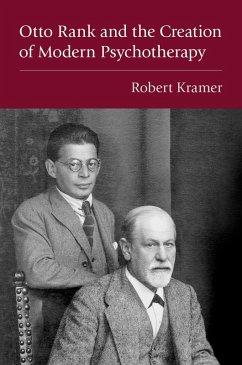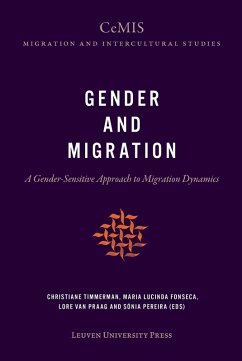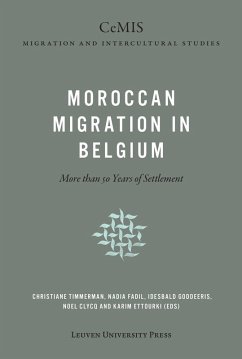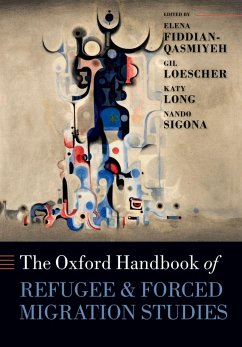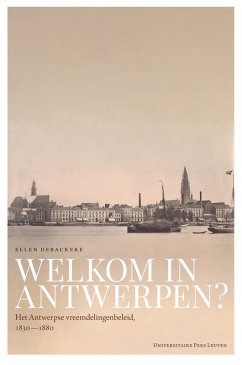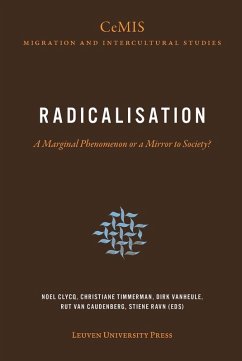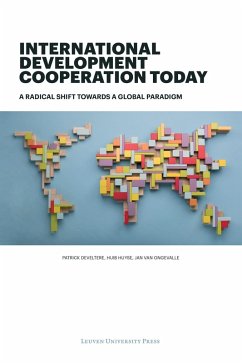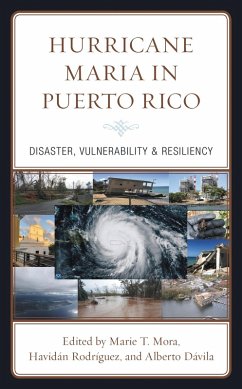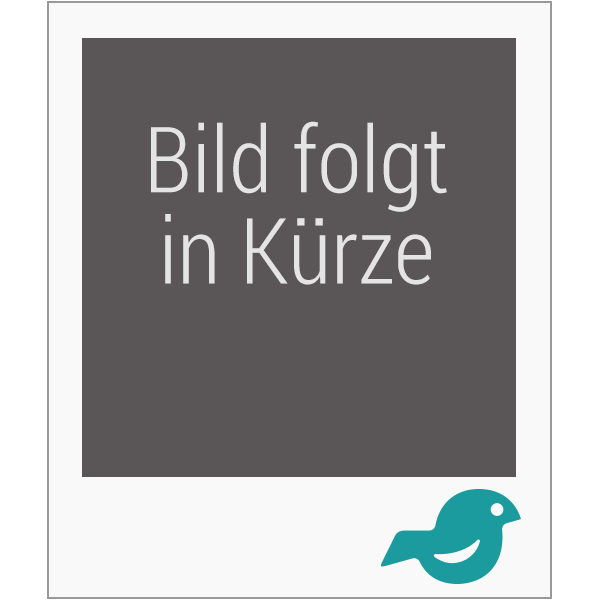
Co-creation in Migration Studies (eBook, PDF)
The Use of Co-creative Methods to Study Migrant Integration Across European Societies
Redaktion: Lore van Praag, van Praag

PAYBACK Punkte
23 °P sammeln!
Challenges and pitfalls of co-creative methods appliedto migration studiesCo-creative methods areincreasingly used to understand and facilitate integration processes ofmigrants in immigrant societies. This volume aims to contribute to the debateson the ways in which co-creative methods may advance migrant integration. Morespecifically, the contributions investigate how co-creative research strategiescan provide insights into how integration processes into various domains ofimmigrant society (e.g. language learning, housing, employment) are shaped,and how they can contribute to policy making an...
Challenges and pitfalls of co-creative methods appliedto migration studies
Co-creative methods areincreasingly used to understand and facilitate integration processes ofmigrants in immigrant societies. This volume aims to contribute to the debateson the ways in which co-creative methods may advance migrant integration. Morespecifically, the contributions investigate how co-creative research strategiescan provide insights into how integration processes into various domains ofimmigrant society (e.g. language learning, housing, employment) are shaped,and how they can contribute to policy making and new policy practices. Because co-creativemethods are relatively new approaches to research and policy making, theauthors evaluate and demonstrate the pitfalls and benefits of using them. Startingwith a theoretical and methodological overview of co-creative methods,empirical chapters document and critically assess ongoing research experiencesand studies to incorporate co-creative methods in academic research acrossEurope.
Co-creation inMigration Studies analysesthe use of co-creative methods in migrant research and policy making, reflectsupon the conditions required to successfully implement these methods, and offersnew insights and recommendations for future research and policy making practices.
Contributors: Chloë Angé (Université Libre de Bruxelles), Maria AmataGarito (International Telematic University), Hanne Apers (University of Antwerp), MaurizioBergamaschi (University of Bologna), Ingrid Breckner (HafenCity UniversityHamburg), Fidel C.T. Budy (Sheffield Hallam University), Alessandro Caforio(International Telematic University), Teresa Carlone (University of Bologna), Emanuela DalZotto (University of Pavia and Milan University), Rianne Dekker (UtrechtUniversity School of Governance), Valentina Fusari (University of Pavia), KarinGeuijen (Utrecht University School of Governance), Karen Latricia Hough (Sheffield Hallam University), Sara Lembrechts (Ghent University),Marie Malchow (HafenCity University Hamburg), Carolina MudanMarelli (University of Bologna), Jörg Rainer Noennig (HafenCity UniversityHamburg), Caroline Oliver (University College London), Alessandro Pollini(International Telematic University), Andrea Rea (Université Librede Bruxelles), Lena Richter (Radboud University Nijmegen), Yara Abdel Samad(Sheffield Hallam University), Rosa Thoneick (HafenCity University Hamburg),Lore Van Praag (University of Antwerp), Ellen Van Vooren (Children's RightsKnowledge Centre)
This publication is GPRC-labeled (Guaranteed Peer-Reviewed Content).
Co-creative methods areincreasingly used to understand and facilitate integration processes ofmigrants in immigrant societies. This volume aims to contribute to the debateson the ways in which co-creative methods may advance migrant integration. Morespecifically, the contributions investigate how co-creative research strategiescan provide insights into how integration processes into various domains ofimmigrant society (e.g. language learning, housing, employment) are shaped,and how they can contribute to policy making and new policy practices. Because co-creativemethods are relatively new approaches to research and policy making, theauthors evaluate and demonstrate the pitfalls and benefits of using them. Startingwith a theoretical and methodological overview of co-creative methods,empirical chapters document and critically assess ongoing research experiencesand studies to incorporate co-creative methods in academic research acrossEurope.
Co-creation inMigration Studies analysesthe use of co-creative methods in migrant research and policy making, reflectsupon the conditions required to successfully implement these methods, and offersnew insights and recommendations for future research and policy making practices.
Contributors: Chloë Angé (Université Libre de Bruxelles), Maria AmataGarito (International Telematic University), Hanne Apers (University of Antwerp), MaurizioBergamaschi (University of Bologna), Ingrid Breckner (HafenCity UniversityHamburg), Fidel C.T. Budy (Sheffield Hallam University), Alessandro Caforio(International Telematic University), Teresa Carlone (University of Bologna), Emanuela DalZotto (University of Pavia and Milan University), Rianne Dekker (UtrechtUniversity School of Governance), Valentina Fusari (University of Pavia), KarinGeuijen (Utrecht University School of Governance), Karen Latricia Hough (Sheffield Hallam University), Sara Lembrechts (Ghent University),Marie Malchow (HafenCity University Hamburg), Carolina MudanMarelli (University of Bologna), Jörg Rainer Noennig (HafenCity UniversityHamburg), Caroline Oliver (University College London), Alessandro Pollini(International Telematic University), Andrea Rea (Université Librede Bruxelles), Lena Richter (Radboud University Nijmegen), Yara Abdel Samad(Sheffield Hallam University), Rosa Thoneick (HafenCity University Hamburg),Lore Van Praag (University of Antwerp), Ellen Van Vooren (Children's RightsKnowledge Centre)
This publication is GPRC-labeled (Guaranteed Peer-Reviewed Content).
Dieser Download kann aus rechtlichen Gründen nur mit Rechnungsadresse in A, B, BG, CY, CZ, D, DK, EW, E, FIN, F, GR, HR, H, IRL, I, LT, L, LR, M, NL, PL, P, R, S, SLO, SK ausgeliefert werden.




